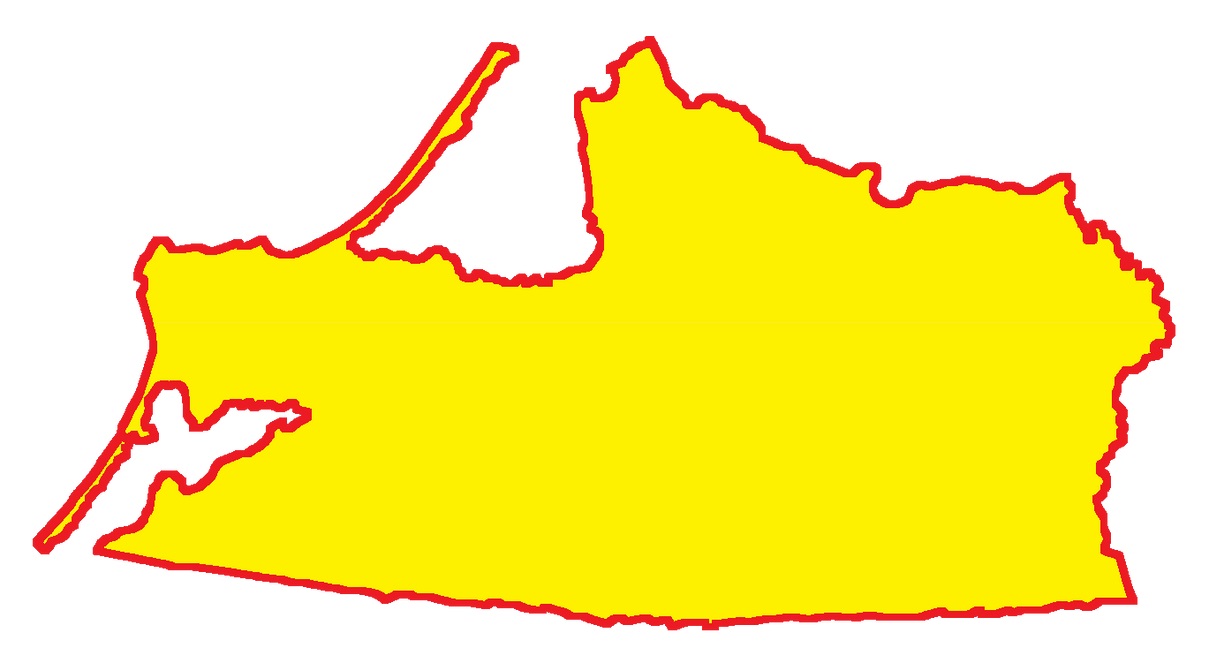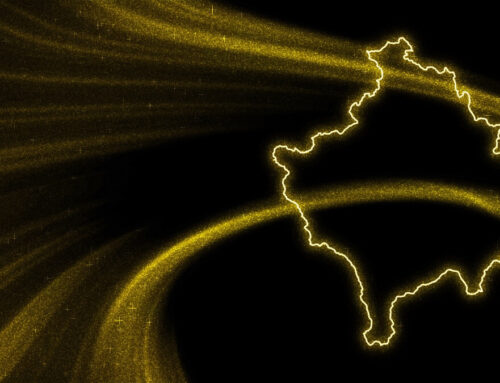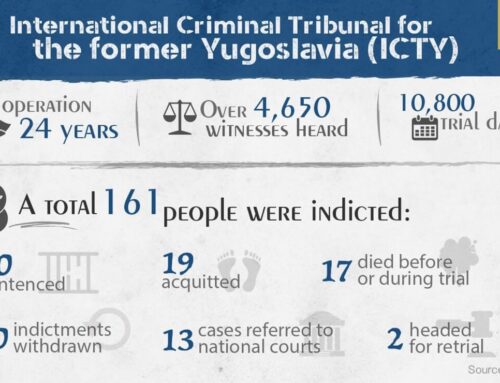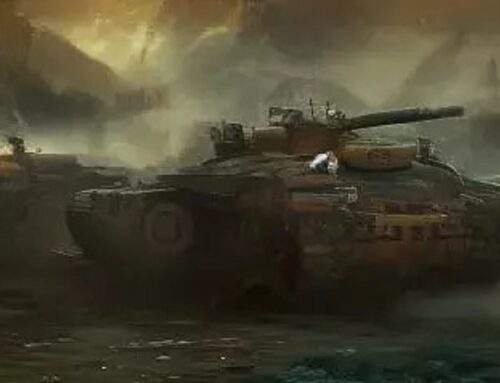Being from Kaliningrad in the event of war, I’m constantly asked about the identity of Kaliningraders. Among the most prominent questions is whether there ever was an ambition, or, at least, a dream to be sovereign, desire to be the fourth Baltic state.
Facebook posts with rumours about Mark Zuckerberg purchasing Kaliningrad to build a science-city would cause a stir among the young generation ever so often but seldom did a serious discussion occur. Curiously humorous polls about one’s preference of Kaliningrad’s future with options of Germany, Poland, Lithuania and Russia would take place. However, not much would come out of it, considering that it seemed as nothing else than a far-fetched scenario.
Former member of Kaliningrad duma (Russian regional parliament), Solomon Ginsburg, has been among ardent supporters of Kaliningrad having a special federal status, going as far as preparing a parliamentary project. His initiative was supposed to decrease the anti-Moscow and anti-federal sentiments. In his view, such desires were not geography-related but were rather a result of Kaliningrad’s complicated economic situation.
Having lived in the region for the majority of my life, I would describe the sentiment as: ‘we have no desire to break up with Russia, we are part of it, but we would be immensely happy to partner with the West more’. However, recent years have witnessed a rise in the identity of Kaliningraders, more people see them as Kaliningraders first, and Russians second, especially among the younger generation. When I mentioned in my school that I introduce myself as Dasha from Kaliningrad, Russia almost everyone related to the city-state order. A common phenomenon for Kaliningraders, especially those who were born in the post-soviet era, is that the culture centre for them tends to be non-Russian. Due to Saint-Petersburg and Moscow being located quite far away and the ‘nearby West’ being a much cheaper travel alternative, the first exposures to opera, concerts, and ballet occur outside of Russia. The Kremlin recognised that and invested in the ‘Yantar-hall’ (Amber-hall), an arena on the Baltic sea that was supposed to be a shelter after the ‘cultural sanction’ post-Crimea. However, driving people to Poland, Lithuania, and Germany for concerts, festivals and tournaments remained quite a lucrative business. During the Cirque du Soleil performance in Vilnius in 2015, the number of familiar faces was remarkable, especially once one considers that I am from a small town in Kaliningrad. Exclamations in Russian were omnipresent, as the acrobats displayed their inhumane physique. First Tchaikovsky ballet for a number of people would be seen abroad. This common experience impeccably encapsulates the Kaliningrad sentiment: we are Russian but we need Europe for our identity, too. In the post-Covid visaless reality of Russia my parents had no choice but to opt for Sochi as a vacation destination, for the first time in ten years, they went to Russia (this is how Kaliningraders refer to the mainland Russia) instead of going to Europe. They came back unexpectedly surprised. The way of life was more foreign than that of the Baltic states or Germany. ‘Pyatorochka [an all-Russian supermarket, which did not open in Kaliningrad until 2020] was so dirty with boxes topping each other and no outlay of the store present. A lot of goods were damaged. The policemen were rude. The garbage bins were constantly overfilled’ – my mother concluded upon her return. She had a fair point, first things, mainland Russians notice about Kaliningrad are clean cobblestone streets, European fashion sense in clothing and neat outlay in the grocery store.
In the post-sanction and post-pandemic reality, Moscovites excluded from the European resorts sought the second closets available thing – Kaliningrad, bulk-purchasing apartments on the Baltic coast and provoking negative reactions from the locals, who face inflated real estate market. This influx of tourists and newcomers to the regions had another effect – the realisation of differences with mainland Russia. To put it simply, Kaliningraders started realising the attraction of their own region. The sense of city identity started growing. This rise did not go unnoticed by the government. Kremlin undertakes rather humorous attempts to proclaim the land of Fichte and Kant ‘a solely Russian land’. Among my favourite attempts is a telegram post by the governor, Andrei Alichanov, who was appointed by Putin stating that the seal of the great Kyiv prince Vladimir Monomakh [regarded by Russia as one of the beginners of Russia’s statehood] was found in the oblast, therefore making it ‘a truly Russian land’. Another great one is a huge banner in the heart of the city’s main attraction – Immanuel Kant’s island. The banner is vainly trying to compensate for the city’s capitalisation on the German past, declaring in a grand font: “Immanuel Kant – philosopher from the city K’.
Current Kaliningrad intelligentsia, despite being deeply infiltrated by Western ideals, would not opt for sovereignty, or other state future in current circumstances. Such a notion was never even seriously contemplated by them. However, what is worth noticing Kaliningrad intelligentsia is relatively unformed. It is in its infancy with the younger generation becoming more actively involved and with a strong desire to be united. Older Kaliningrad erudites never formed a social cluster, restricting themselves to a Soviet-style kitchen talk with one or two friends.
However, the war fails to bring any positive forecast to the oblast with severe economic implications, population polarisation, real estate inflation and rapidly increasing anti-Moscow sentiment. Considering the shaky position of the Russian Federation in some regions, a parade of sovereignties is likely to occur as a result of the war in Ukraine. Russia’s geopolitical weak spots are highlighted in the event of the crises, as history illustrates. Chechnya, Dagestan, Tatarstan, Bashkortastan, Tyva Republic have always been problematic points for the Kremlin. Kurili and Sakhalin have a long-standing Japanese claim to them, not to mention the dubious nature of Transnistria and the annexed Abkhazia and Northern Ossetia. The question is, whether Kaliningrad would join. Too many factors may influence the sentiment in the region, prognosis is merely a forecast but more of theorisation, an imagined scenario. Considering the geographical and cultural proximity to the West, this scenario should not be ruled out. The more the Kremlin will attempt to break the Western tie of Kaliningrad, the more likely it is likely to seek sovereignty.
What are the options for Kaliningrad? The answer to this question further complicates the theorisation. In my opinion, any hopes for the Königsberg’s historically righteous return to the German state is a highly unlikely possibility. German ancestral trauma runs too deep for such a return. Even in the post-Crimean annexation, in 2015, when all other Western leaders boycotted Putin’s festivities, Angela Merkel flew to Moscow on Victory day to lay a wreath at the Red Square. Another aspect is modern German identity has little to do with the Prussian Junker tradition, which is associated with Königsberg. If anything there is a strong intention to keep that part of the past in the past. The Lithuanian future for the exclave also seems rather dim. Kruschev offered the region to the Lithuanian SSR during his term, however, the offer was politely declined. Such an addition to the Lithuanian states would completely shift the ethnical composition – almost one million ethnical Russian is far from desirable for the Lithuanian states, especially in the current reality, where the Russian diasporas, infused with the Kremlin propaganda, attempts to jeopardise democracy in the Baltic states. Kaliningrad’s addition would mean that roughly 25% of Lithuania’s population will be ethnically Russian. Poland might be the only country, which would want the new addition, however, the EU’s concern regarding Poland’s political landscape is growing annually and may put a ban on such an ambition. What remains? The fourth Baltic state, or its fantasy. What would it take for it to be formed? The abolition of historical fear of change, the distrust of the West and the remnants of Putin’s propaganda. The young generation of Kaliningraders seems to boast these qualities but so did the young people of Tatarstan in the 90s. Will the geographical isolation, heavy economic implications of the Kremlin’s policies, realisation of the true nature of the war and potential support of the EU make the difference this time around?
As Ludwig Wittgenstein preached, there is a rhinoceros in the room – the power vacuum ( though, perhaps, it was only informal) in the Baltics has ended with the triumph of NATO. After eventual, possibly hand-twisting, Hungarian and Turkish ratification, Finland and Sweden will be NATO members, leaving Kaliningrad the only permanent entity on the Baltic sea outside of the organisation. The Gulf of Finland separates Saint-Petersburg both territorially and also seasonally, it freezes in winter, blocking access to the sea. Russia never had full dominance in the region, in fact, that is among the country’s biggest historical and geopolitical insecurities – being a landpower, according to Mackinder’s vocabulary. The importance of the change is this obvious and public shift in power – Russia will feel ‘cornered’. And this idea of being ‘cornered’ is a crucial part of Russian propaganda – ‘we were left with no choice’, ‘the whole world is against us’ – are Putin’s main sentiments. And the groundwork for this sentiment to be reciprocated has been in progression since 2014. Kaliningrad became heavily militarized. Previously, as the person from the oblast, you felt no overwhelming military presence. We knew we had a fleet, but it was ‘there’, by the sea. We had the young cadets walk around the city in their impeccably ironed uniform but a 12-year-old boy in a blue uniform with a peaked cap comes across as endearing. In fact, a city, which is so nostalgic about its past, constantly comparing everything to ‘how it used to be in Germany’ and constantly renovates the buildings to ‘make them look as before’, the harmless boys walking around in an article of old fashioned clothing seem to be an organic addition.

But in the post-Krimea Kaliningrad, streets are filled with soldiers. At first, it was unsettling but one gets used to it. Moreover, in an economically strangled region, the military is arguably the only social lift at one’s exposal. I attempted to gather some statistics about unemployment but governmental sources vary greatly, around 37000[1] unemployed is the most recurring number. According to this source, 5.2% [2] in the 2nd quarter of 2020 were unemployed, and the number was only bound to grow after the war. The dearth of job opportunities is an unescapable talk in elevators, taxis and bars. The military provides jobs, thus its presence breeds content. This content is further reinforced by propaganda. Propaganda’s effect is greater now than ever. The idea of the EU being evil is likelier to succeed when there is no access to the EU. Prior to COVID and war, one would wait two-three, sometimes five hours, to cross the border. No matter the wait, people would go and see for themselves that, in fact, Europe is not evil. It is a place with better food, better clothes, better roads, better concerts and people, who smile. That image is no longer in place. It is been three years since the public had access to travelling. So the overwhelming support in favour of being part of the ‘collective West’ will have to be manufactured.
Russia is infamous for not letting its territories go, so expecting a referendum or the possibility of a ‘way out’ for Kaliningrad is out of the question. Unless there is an active campaign offering Kaliningraders an opportunity to join the European community, it will not cross the mind of the oblast. Accordingly, NATO’s dominance in the Baltics will not be decisive in the future of the region. My guess would be that on the contrary, it could provoke Kremlin’s more draconian policies and propaganda narrative, decreasing the chances of independence.
The short and most correct answer to Kaliningrad’s future is: there is no knowing, too many factors will have a say. One thing is certain, however, Kaliningrad’s future will be an interesting one to follow.
Sources:
[1] https://kaliningrad.rbc.ru/kaliningrad/29/03/2022/6242ea0d9a794765a04b9b0a
[2]https://knoema.com/atlas/Russian-Federation/Kaliningrad-Region/Unemployment-rate#:~:text=Kaliningrad%20Region%20unemployment%20rate%20was,up%20from%204.3%20%25%20previous%20quarter.





